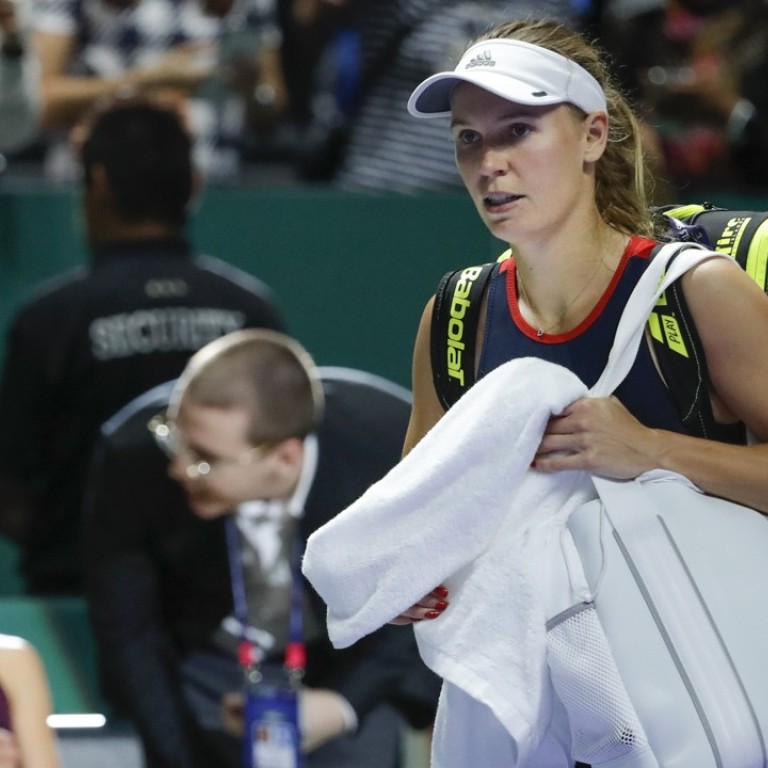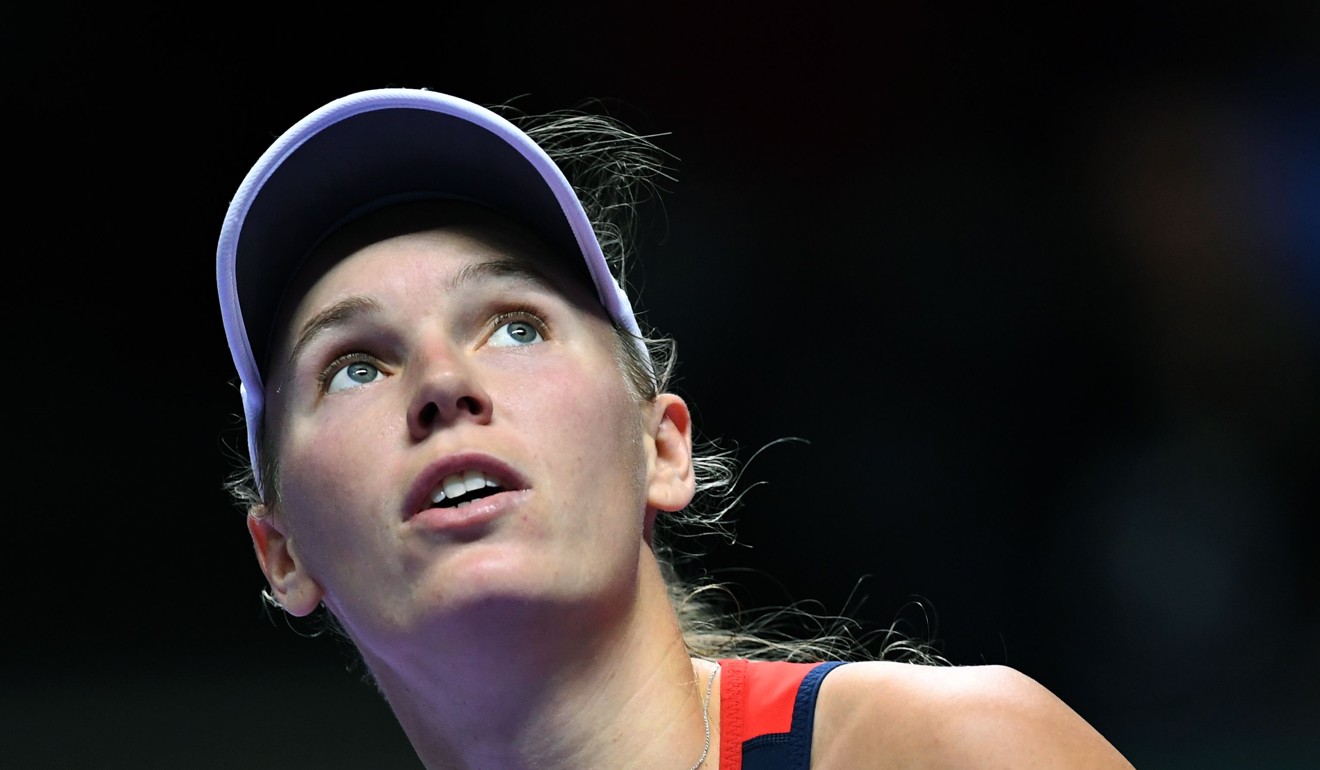
WTA Finals Singapore 2018: Caroline Wozniacki reveals rheumatoid arthritis condition after Elina Svitolina loss
- World No 3 will have to manage the autoimmune disease for life
- Dane diagnosed after the US Open but has been struggling since July
After crashing out of the WTA Finals in Singapore, Caroline Wozniacki revealed she is suffering from autoimmune disease rheumatoid arthritis.
The world number three’s title defence was ended by a 5-7, 7-5, 6-3 defeat by Elina Svitolina at the Singapore Indoor Stadium, and brought to a close a triumphant season which saw her win her first grand slam at the Australian Open in January.
But for the second half of the year, she had been competing with a disease that attacks the joints, and that causes sufferers to swell up when the body has a lot of fluids in it, and to become tired and exhausted.
“In the beginning, it was a shock,” Wozniacki told her post-match press conference. “You feel like you’re the fittest athlete out there. That’s what I’m known for, and all of a sudden you have this to work with.”

The Dane said she thought she had the flu while on holiday after Wimbledon in July. But things got worse with her knees and legs hurting when she returned to the court in Washington.
She said she woke up one morning at the Rogers Cup in Montreal in August and was unable to lift her arms over her head.
A doctor told her she was fine, she said, but she felt something was wrong.
“It’s been a lot to just take in. After the US Open, I just kind of had to figure out what really was going on,” she said.
“So that’s when I really figured it out. I went to see one of the best doctors there is and start treatment.”
The 28-year-old, who briefly recaptured the number one ranking in 2018 after a six-year wait, kept her condition private as she learned to cope with it.

And after winning her first title at the China Open in Beijing since her diagnosis, she was overcome with emotion.
“I think that meant so much to me,” Wozniacki said. “It also gave me the belief that nothing is going to set me back.”
“I’m very proud of how I have been so positive through it all and just kind of tried to not let that hinder me,” she added.
“I didn’t want to talk about it, obviously, during the year because I didn’t want to give anyone the edge or thinking that I’m not feeling well. You learn how to just cope after matches.
“Some days you wake up and you can’t get out of bed, and you just have to know that’s how it is, but other days you’re fine.
“You don’t even feel like you have it. I didn’t want to look it up, I didn’t want to Google it, because if you Google stuff you feel like you’re going to die.”

Wozniacki said she was happy the season is now over, so she can look at ways to further control the disease during the off-season.
But it is a condition she will have to battle every day for the rest of her life.
“You find a plan, figure out what to do, you do your research, and thankfully there is great things now that you can do to it,” she said.
“You just kind of move on from it and work through it and figure out how to deal with it and live with it.
“The medication has really improved, so that’s amazing. You have to think about diet, sleep, everything else.
“You know, it’s a lifetime thing. It’s not something that just goes away.”

